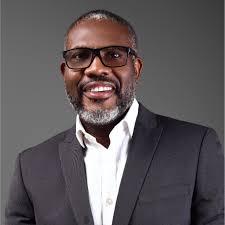The Association of Telecommunications Companies of Nigeria (ATCON) convened a breakfast meeting today to tackle the persistent issue of fiber cuts in Nigeria. Held under the theme “The Direct and Indirect Cause and Impact of Metro, Terrestrial and Submarine Fiber Disruptions – Short, Medium and Long-term Sustainable Solutions,” the meeting coincided with World Telecommunications and Information Society Day, observed annually on May 17th.
The gathering aimed to address the frequent disruptions to metro and terrestrial fiber networks, which lead to degraded internet services, increased maintenance expenses, and prolonged service outages. Experts identified government and private sector construction activities as primary culprits for terrestrial cable cuts, while fishing trawlers, dredgers, oil companies, and vessel operations were pinpointed as significant contributors to submarine cable disruptions.
A worrisome revelation from the event was that 90% of fiber cuts stem from government and private projects, posing a considerable concern for Nigeria’s growing economy. Stakeholders highlighted the coastal road construction project linking Lagos to Calabar as a major threat to submarine cable integrity. They emphasized the pivotal role of the government in addressing these issues, urging the passage of the Critical National Infrastructure bill, fostering inter-agency collaboration, raising awareness, and aligning certification standards for fiber optic service providers. Additionally, closer monitoring of the National Broadband Plan’s implementation was deemed necessary to ensure its effectiveness.
In 2023 alone, repairs and revenue losses stemming from damaged cables in Nigeria are projected to tally approximately N27 billion ($23 million), an unsettling economic toll. MTN, a major player in the nation’s telecommunications landscape, grappled with a staggering 6,000 fiber cuts throughout the year, prompting the costly relocation of 2,500 kilometers (1,553 miles) of vulnerable fiber cables between 2022 and 2023, an endeavor eclipsing N11 billion in expenses. The Nigerian Communications Commission (NCC) also reported over 50,000 instances of fiber optic cable destruction and other telecommunications infrastructure damage in 2023, an alarming trend indicative of broader challenges facing the industry.

A comprehensive report reveals the financial burden borne by Mobile Network Operators (MNOs), Infrastructure Companies (InfraCos), and other Service Providers in addressing these infrastructural disruptions. In 2022 alone, an estimated N13 billion was expended on rectifying damages resulting from fiber cuts and related incidents, a figure that escalated to N14.6 billion in 2023. Concurrently, operators in the telecommunications sector incurred substantial revenue losses amounting to N12 billion in both 2022 and 2023, attributable to customer compensation obligations, site relocations, and investments in bolstering fiber resilience.
Amidst these challenges looms a critical imperative: the absence of a policy framework expressly designating and safeguarding digital infrastructure as essential national assets. This regulatory vacuum heightens the vulnerability of vital telecommunications assets to acts of sabotage, posing a formidable obstacle to Nigeria’s aspirations for robust digital infrastructure and the ambitious target of achieving 70% broadband penetration by 2025.




